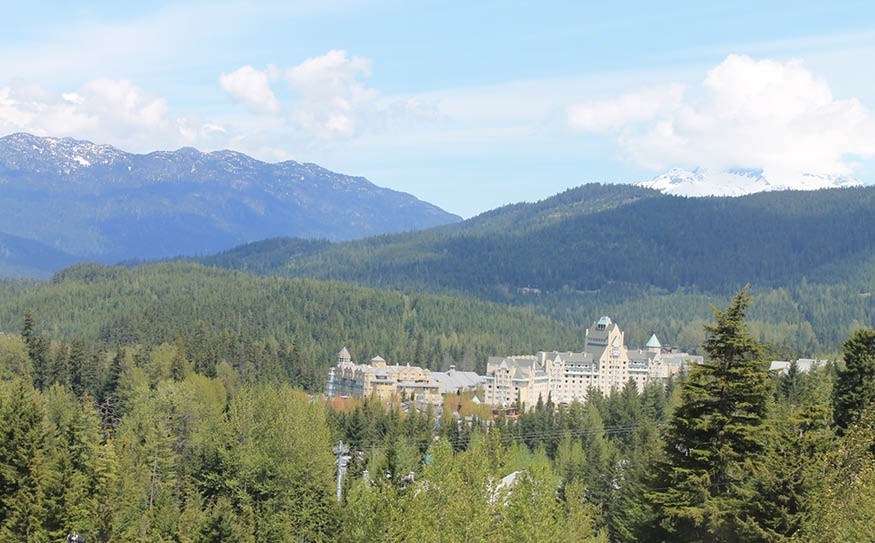This would have been a pristine weekend but a haze hanging over Whistler and the entire Sea to Sky corridor put a flaw into what was nearly a perfect summer weather weekend.
According to an atmospheric scientist in Seattle, the haze hanging over Whistler Saturday and Sunday morning is from forest fires in Asia.
Cliff Mass, a professor at the University of Washington, studied satellite images from a number of sources and concluded smoke from a series of large fires on the other side of the Pacific Ocean was hanging over the coast of B.C., Washington and part of Oregon.
“The air over us can be traced back to Asia at low levels,” wrote Mass on his Internet blog site.
Mass cites information from weather satellites and NASA in reaching his conclusion. A satellite image from Friday clearly shows a layer of smoke over a small part of northwestern Oregon, the western part of Washington State, Vancouver and the Fraser Valley.
His blog also includes an image of NASA maps showing the location of large forest fires across Russia and other Asian countries.
“You guys are right in the middle of it, at least for the last few days you have been,” Mass said from his home in Seattle.
He said the thickest smoke was over the Olympic Peninsula, Vancouver Island and up to Whistler.
Mass first noticed the smoke over Seattle after flying home from Colorado Thursday afternoon. He said at first he thought the smoke over Seattle was from the Colorado fires but when he started looking at satellite images and the weather patterns of the last few days it became clear there was no way Colorado smoke was getting to the Pacific Northwest.
Mass used information provided by the National Oceanic and Atmospheric Administration (NOAA) to backtrack and calculate where the smoke lingering over the Pacific Northwest originated from.
According to Environment Canada’s air quality website, the air quality reading for Whistler late Sunday morning in Whistler was 4, which represents moderate risk. Environment Canada suggests that when the air quality is rated as moderate risk to health those with conditions impacted by air quality should, “Consider reducing or rescheduling strenuous activities outdoors if you are experiencing symptoms.
“You can reduce the impact of air pollution on your health by exercising less intensely: try walking instead of jogging and taking more breaks.”
The air quality data collected by the Resort Municipality of Whistler from a monitoring station at Cheakamus Crossing has steadily been showing decreasing air quality for the last few days.
The data shows that early in the week there was three to four micrograms per cubic metre of particulate in the air. The reading at noon on Sunday indicated 20.5 micrograms per cubic metre, a significant jump in just a few days.




